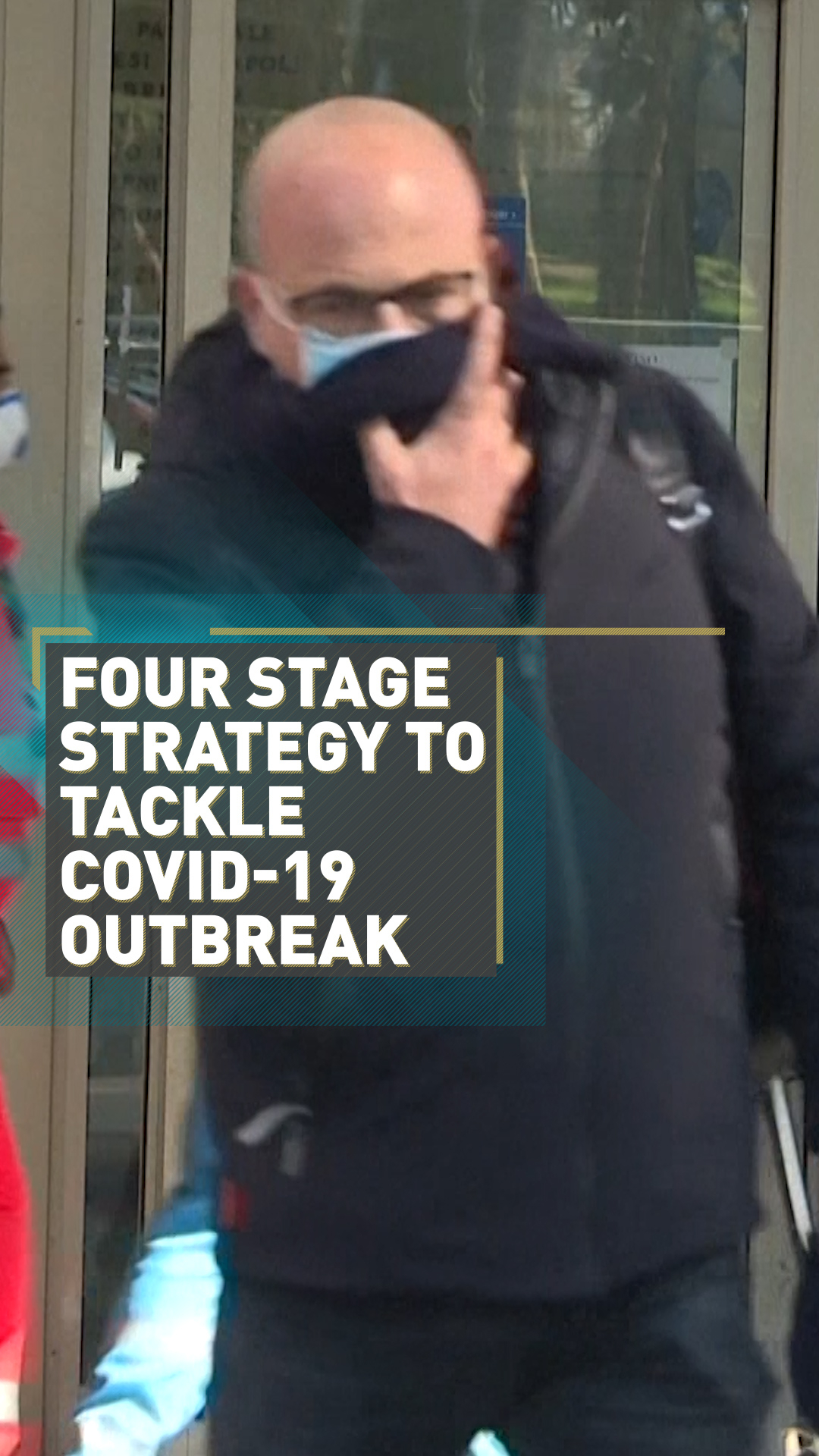02:50

Spiraling COVID-19 cases in Italy show it is now in the "mitigate" phase of a four-stage strategy that has been implemented globally to tackle the outbreak.
European countries are mainly in the "delay or mitigate" stages of a plan that outlines the methods to use. The four defined stages are: contain, delay, mitigate and recovery.
From full-scale lockdowns to holding back and trying to continue as normal for as long as possible, Europe has been looking to deal with the coronavirus in different ways.
Experience from around the globe is useful in tackling the crisis as China has successfully reduced the number of cases, while Singapore and Hong Kong have been able to cut the spread of the virus at an early point.

Patients with coronavirus are treated in Italy. Miguel Medina/AFP
Patients with coronavirus are treated in Italy. Miguel Medina/AFP
Italy so far has been the worst hit nation in Europe by COVID-19 and, with its basic public health infrastructure stretched, it is in the "mitigate" stage. The UK, meanwhile, has moved into the "delay" stage, in which it is trying to slow down the spread as much as possible.
Singapore and Hong Kong both seem to have learnt the lessons from the 2003 SARS epidemic, as they have acted fast to limit the impact of COVID-19. They have had a relatively low number of cases since the outbreak, with Italy, Iran and South Korea the worst-hit regions.
Singapore has implemented strong surveillance and contact tracing. All flu-like cases were tested and each point of contact painstakingly worked out. It means that by 13 March, Singapore has had 178 cases and no deaths.
Hong Kong moved quickly to introduce social distancing. Schools have been closed and businesses have either closed or asked people to work from home.
The four stages:
Contain – Most countries in Europe have now moved beyond this stage, after failing to prevent the spread of coronavirus. The strategy is to stop the virus as much as possible by catching cases quickly and tracing where the outbreak started as has been the case in Singapore and Hong Kong. If effective, this would mean less of a strain on the health system and medical supplies.
Delay – The UK has now moved into this phase in which the aim is now to slow down the spread of COVID-19 as much as possible. In the UK, this led to Prime Minister Boris Johnson telling people with continuous coughs and high temperatures to stay at home for seven days. France and Belgium are among the countries that have closed schools and colleges. An emphasis is also on social distancing, which proved successful in China.
00:35

Mitigate – Italy is clearly in the mitigate stage of the outbreak, with it having become a full-blown crisis. Spain is also entering this phase, with hospitals especially in Madrid struggling to cope with the demand for beds and equipment. Under the mitigate stage, countries try to focus their resources on tackling the virus to the detriment of other areas. It means that public services such as the health service and police need to concentrate on dealing with the outbreak, with hospitals for example only accepting severely ill people.
Recover – After the crisis has peaked and the number of coronavirus cases starts to fall, governments need to focus on kick-starting their economies that have been hit hard by the outbreak. COVID-19 started out in China but has been successfully contained largely in the epicenter, Wuhan, and now the country is bouncing back by reopening schools and people are returning to work. Factories are starting up again and slowly the economy is responding.
During all these four stages there is also research being undertaken to tackle the disease. With it being a new virus, scientists are looking at ways to treat patients with new medicines and to reduce pressure, as much as possible, on health services. Governments around the world have been investing money on research and attempts to find a vaccine.